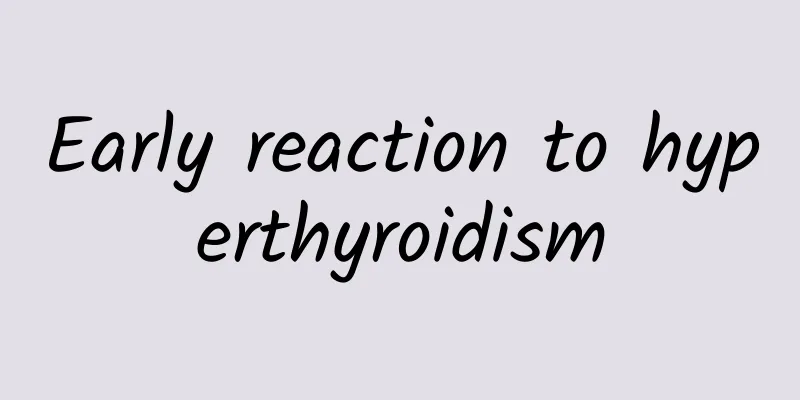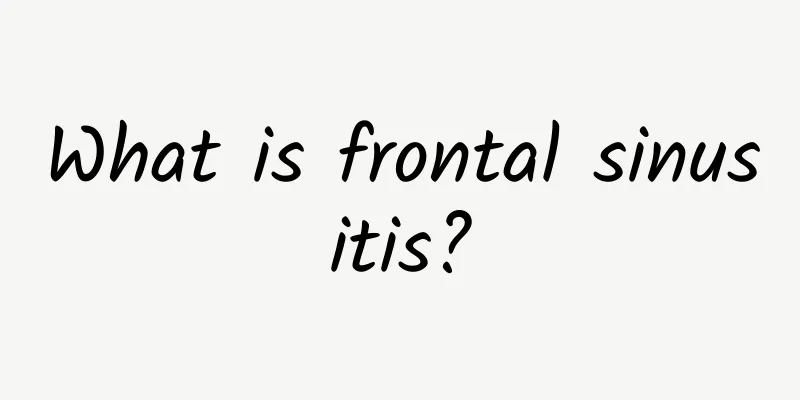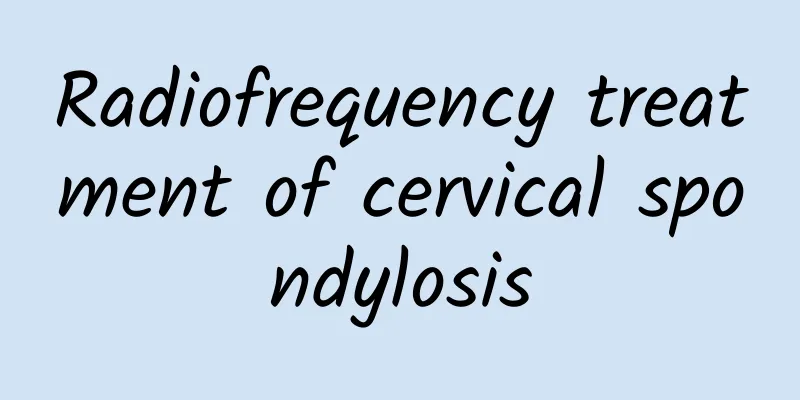Early reaction to hyperthyroidism

|
The early reaction of hyperthyroidism, hyperthyroidism is a very common endocrine disease in clinical practice. It's called hyperthyroidism. This is due to the excessive synthesis and release of thyroid hormone by the thyroid gland, which leads to hypermetabolism and sympathetic nerve excitement, causing a series of clinical symptoms. Common symptoms of hyperthyroidism include exophthalmos and premature myxedema, palpitations, and poor sleep. Some women may also experience menstrual disorders. The clinical manifestations of hyperthyroidism include enlarged thyroid gland, irritable temperament, easy excitement, insomnia, trembling hands, fear of heat, sweating, moist skin, increased appetite but emaciation, weight loss, palpitations, rapid and strong pulse (the pulse rate is often over 100 beats per minute and is still rapid during rest and sleep), increased pulse pressure (mainly due to increased systolic blood pressure), endocrine disorders (such as menstrual disorders), as well as weakness, fatigue, and proximal limb muscle atrophy. Among them, increased pulse rate and pulse pressure are particularly important, and can often be used as important indicators to judge the severity of the disease and the effectiveness of treatment. 1. Clinical symptoms Hyperthyroidism can occur at any age, most often between 20 and 40 years old. Generally, the incidence rate in women is higher than in men, about 4:1. However, in areas where goiter is endemic, the incidence rate in women is slightly higher than that in men, about 4:3. Young women often experience adolescent hyperthyroidism, with mild symptoms. Some people do not receive treatment and the disease heals on its own after puberty. Elderly patients are more likely to have "latent" or "indifferent" hyperthyroidism than younger patients. Their neurotic and emotional symptoms are milder, and the incidence of exophthalmos is also lower. Multiple systems are affected in hyperthyroidism, and the clinical manifestations are variable. The disease is more common in young and middle-aged people aged 20 to 40 years old, but in recent years, the number of elderly patients with hyperthyroidism has been increasing. The onset is slower, and most patients have a history of mental trauma and family history. After the onset of the disease, the course is prolonged and may not be cured for several years. The recurrence rate is high, and various complications may occur. (1) Abnormalities in energy metabolism and sugar, protein, and fat metabolism: In hyperthyroidism, the basal metabolic rate (BMR) increases, which may lead to hot flashes, sweating, weight loss, low work efficiency, muscle wasting, weakness, fatigue, negative balance of protein metabolism, decreased or normal cholesterol, disappearance of subcutaneous fat, accelerated fat metabolism, increased breakdown of liver and muscle glycogen, accelerated glycogenolysis, increased blood sugar or postprandial hyperglycemia. Severe abnormalities in sugar metabolism may lead to diabetes. (2) Disorders in water, salt and vitamin metabolism: Thyroid hormones can promote diuresis, potassium excretion and magnesium excretion. Therefore, hypokalemic periodic paralysis and hypomagnesemia are prone to occur in hyperthyroidism. The movement of calcium and phosphorus is accelerated, and there is often high urine calcium, high urine phosphorus and high urine magnesium. Over time, bone decalcification and osteoporosis may occur. When hypocalcemia occurs and the patient does not take in enough calcium, a small number of patients may develop secondary hyperparathyroidism. At the same time, due to poor absorption, rapid metabolism and high consumption in hyperthyroidism, multiple vitamin deficiencies such as vitamin B1, C, D and trace element deficiencies may occur. (3) Symptoms of abnormal skin and muscle metabolism: negative metabolic balance of protein, negative balance of creatine, negative balance of nitrogen, decreased ATP, decreased creatine phosphate, prone to hyperthyroid myopathy, eye muscle weakness, myasthenia gravis, or frequent flaccid paralysis, myxedema of the skin, more common on the eyelids and anterior tibia, softening or deformation and infection of nails. (4) Symptoms of the cardiovascular system: Thyroid hormones excite the myocardial sympathetic nerves and enhance the effects of catecholamines, resulting in tachycardia, arrhythmia, increased heart sounds, increased pulse pressure, and even cardiac enlargement and apical systolic murmur. The elderly are prone to atrial fibrillation, angina pectoris, and even hyperthyroid heart disease and coronary heart disease, leading to heart failure. (5) Mental and nervous system symptoms: Thyroid hormones can excite nerves and muscles, which can easily cause mental tension, impatience, agitation, insomnia, dizziness, worry, irritability, talkativeness, hand tremors, hyperreflexia, and in severe cases, hyperthyroidism psychosis and autonomic dysfunction may occur. (6) Digestive system symptoms: Thyroid hormones can increase intestinal motility, leading to hunger, increased appetite, increased bowel movements, indigestion diarrhea, and poor nutrition and absorption. In severe cases, hypoproteinemia and ascites may occur, and the patient may be in a cachectic state and bedridden. This is more common in the elderly. |
<<: How to lose weight due to hyperthyroidism
Recommend
Breast enhancement exercises before going to bed
In order to have a fuller figure, many female fri...
What are the best ways to remove surgical scars?
In life, we are bound to get hurt or suffer from ...
Why do I have diarrhea every time I have my period?
For some women, diarrhea occurs during menstruati...
Migratory pain in the bones of the limbs
I believe that most people have experienced bone ...
Side effects of drospirenone ethinyl estradiol tablets
When women reach their childbearing age but do no...
How to prevent pneumonia in children
Children's physical fitness is very poor, so ...
What is the fastest way to dehumidify the body?
Is there a connection between dampness and moistu...
Classical Chinese medicine for treating vitiligo
Vitiligo is a common disease in life. The cause o...
Why is my nose so itchy?
An itchy nose is usually caused by irritation ins...
How much does 1g of placenta cost?
We all should know the function of the placenta. ...
Don’t say you don’t know any of these ways to nourish the kidneys in winter!
Winter is the season when all things in nature ar...
What to do if you have sciatica on your buttocks
Sickness on the buttocks generally refers to hemo...
What causes cysts?
Cyst is a very common disease in life. This disea...
Parasitic infections
Parasites are very harmful to human health. There...
Sodium aescinate injection
Sodium aescin injection is ginsenoside acetate ob...









